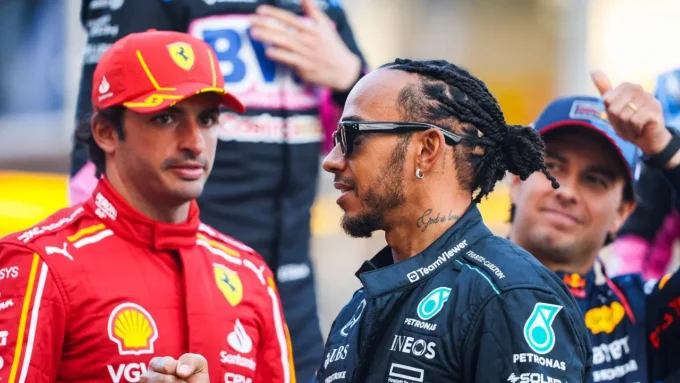Reflecting on a turbulent year for the World Anti-Doping Agency, marked by controversies over Chinese swimmers and Jannik Sinner, its president in an interview with AFP dismissed ‘unfair and defamatory attacks’. Last spring, the sports control body was severely criticised for allowing swimmers who tested positive for trimetazidine to compete in the Tokyo Olympics in 2021. The Montreal-based agency had accepted the Chinese authorities’ explanation that its 23 athletes had eaten contaminated food in a hotel.
WADA president Witold Banka insists that the case is now ‘definitively’ closed as an independent report found ‘no bias against China’. ‘There was no wrongdoing on our part,’ he added. Banka accused US officials who raised such concerns of politicising the case and making ‘very unfair and defamatory attacks on WADA’.
Although tensions have subsided, he admits that relations with the US Anti-Doping Agency remain ‘quite difficult’, insisting that ‘one stakeholder cannot impose its vision (on) how the system should work’.
‘Like it or not, WADA is the body responsible for the anti-doping system in the world,’ he said. The United States, when it hosts the Olympic Games in Los Angeles in 2028 and the Winter Games in Salt Lake City in 2034 ‘will have to cooperate with us,’ he said. The International Olympic Committee (IOC) has included a termination clause in the Salt Lake City contract that could result in the Games being suspended if WADA’s ‘supreme authority’ is not respected.
The other controversy that shook the sports world this year concerned the issue of transparency. Many have criticised the International Tennis Integrity Agency (ITIA) for revealing Jannik Sinner’s positive tests for the anabolic clostebol twice in March 2024 and world number 2 Iga Swiatek’s positive tests for trimetazidine in August, but only announced in November.
WADA director general Olivier Niggli said these highlighted conflicting priorities between ‘protecting an athlete’s reputation and the general public’s need or expectation for transparency. Where do we draw the line?’
‘Protecting an athlete’s reputation should be our first concern,’ he believes. ‘We live in a world where social media is what it is and it means that a reputation can go up in smoke in a very, very short time,’ he said.
Referring to the case of Jannik Sinner, the world’s number 1 tennis player, Niggli also believes that the sports world needs to consider the supervision of athletes’ entourages. ‘We have many demands to strengthen the consequences for the entourage’ and for ‘real monitoring of these people’, he adds.
It is a question of the athlete’s accountability to his entourage that prompted WADA to appeal to the Court of Arbitration for Sport (CAS), a month after a preliminary decision had largely exonerated the Italian player.
‘Our appeal is not intended to challenge the scenario presented by the athlete,’ namely that the drug entered his system when his physiotherapist used a spray containing the drug to treat a cut, then provided massage and sports therapy to the Italian player.
‘Our position is that the athlete still has a responsibility to those around him,’ Niggli told AFP. ‘So this is the legal point that will be debated’ before the CAS next year.



































Leave a comment